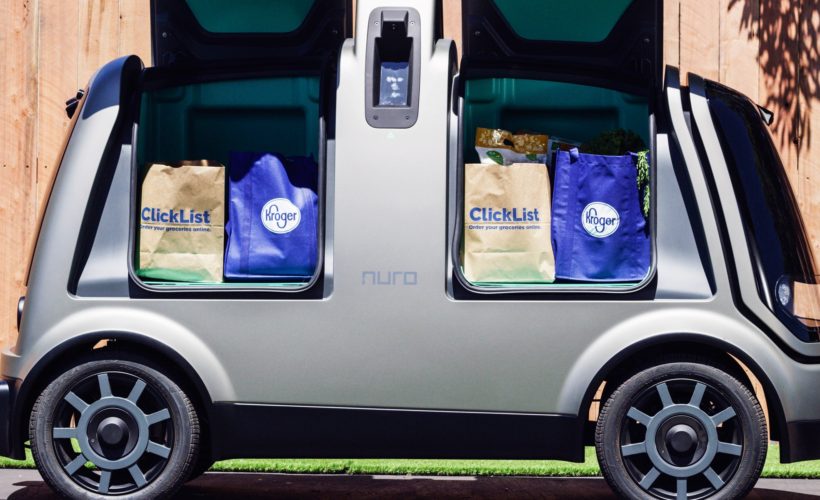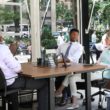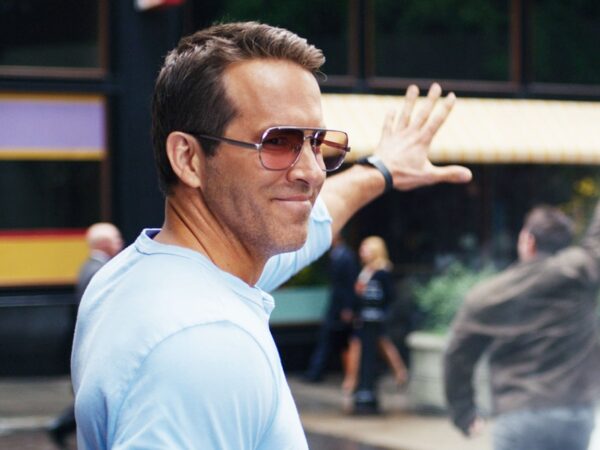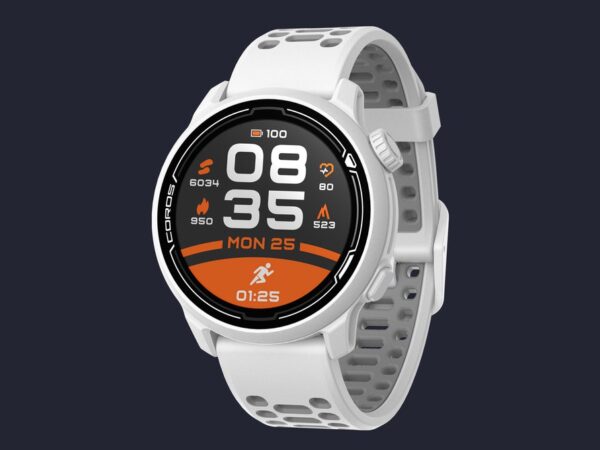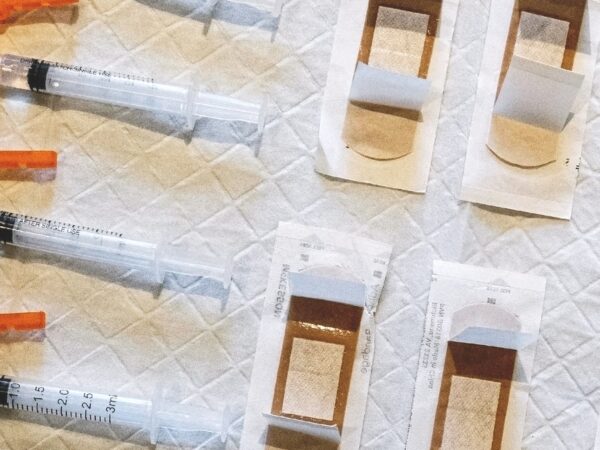Ask most of the people developing autonomous vehicles how robo-cars will change the world, and most will say safety—more than a million people die on the road every year, and self-driving cars could prevent some of those deaths. Some might say smarter cars can battle congestion. Ask Dave Ferguson, though, and he’ll pitch the idea that this technology could make moving about so efficient and affordable that transportation becomes effectively free. But first, before the zeroes and ones can do any of that, they may bring you your groceries. If you shop at Kroger, that is, and are cool with a Lilliputian pseudo-car pulling into your driveway all by itself.
Ferguson is a co-founder of Nuro, the startup making that robot, and his CV is about as good as it gets in this young industry. He got his PhD in robotics from Carnegie Mellon University, helped lead that school’s winning bid at Darpa’s 2007 Urban Challenge, and spent five years on Google’s self-driving project (now known as Waymo). He and his colleague Jiajun Zhu left Google in 2016 to start a self-driving company focused on commercial deliveries, a space Ferguson says offers the chance to offer lots of people a helpful service—one they’ll be willing to pay for—within three to five years.
Nuro designed its first vehicle, the R1, to hold stuff, not people. The electric four-wheeler is about half as wide as your standard sedan and shorter than a Fiat 500. Even Ferguson admits it looks like a toaster, but he thinks it can be efficient enough to make moving stuff easier, safer, and cheaper than ever. And now, it’s time for this Mini-Me of robots to get onto the field and prove it can play with the big kids.
Today, Nuro announced that, in partnership with grocery goliath Kroger, it will launch a pilot project to use the R1 this autumn. The details—like where this will happen, exactly when, how many vehicles it will entail, how much it will cost, and how long it will go on—remain either confidential or up in the air. But Ferguson says the program will look like a real service, operating out of established Kroger locations and offering same-day deliveries to anybody in the area who places an order online.
For the roboticist-run startup, that means it’s time to nail down the operations side of things. Nuro has done plenty of testing, but focus groups can’t replicate how the public will react. “We haven’t done the whole shebang yet,” Ferguson says. And the whole shebang involves real life customers getting their groceries delivered when they want them and without any robot-induced hassle. Nuro must figure out how to make sure its vehicles can always park or pull over safely. Customers will be notified of the vehicle’s location and arrival status on an app, but anyone who has used Uber knows that getting a human driver to find you can be a problem—how do you help a robot? The R1 can carry 12 large grocery bags, what if someone orders 13 bags worth of stuff? (The next iteration will have room for 20, to satisfy even the most American of shoppers.)
Then, Nuro has to work with local, state, and federal regulators to ensure it has the right to roam the streets, which might be tricky since there’s no way to put a human safety driver inside the vehicle. Nuro will remotely monitor the fleet, but Ferguson didn’t say what sort of control its overseers will have over the vehicles. (Just about every self-driving car company is developing the capability to remotely control its vehicles, or at least have a human give them instructions when they get into sticky situations, and the tetchnique will likely become a legal requirement in at least some states.) To crack it all, Ferguson and Jiajun have been hiring folks to fill out the business and logistics side of Nuro, which now has more than 100 employees.
For Kroger, the partnership is a hedge against a future that might not be kind to stores that rely on customers showing up in the flesh. “We’re extremely confident autonomous vehicles will play a role in our business,” says Yael Cosset, Kroger’s chief digital officer. He sees delivery robots as a way to reach more customers at more affordable rates, but figuring out how to best deploy them requires practical experience. “We want to learn.”
Nuro and Kroger would do well to master their lessons. Four out of five Americans would be interested in having groceries delivered, Ferguson says, but cost and inconvenient services mean just 2 percent do it regularly. “We think that there’s a massive massive opportunity.” And the little R1 might just be the robot for the job.
More Great WIRED Stories
- Inside the crypto world’s biggest scandal
- How Square made its own iPad replacement
- Four reasons we don’t have flying cars—yet
- You can now live out Westworld with your Amazon Echo
- How Oprah’s network finally found its voice
- Looking for more? Sign up for our daily newsletter and never miss our latest and greatest stories
Source:WIRED

